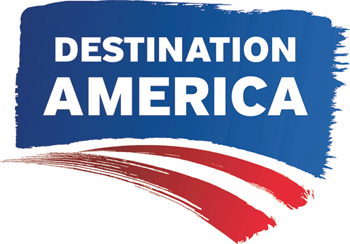
Cultural Humility and Affirming Polyamorous and Non-Monogamous Relationships
Organized and facilitated by Shawn Chrisman and Ruby B Johnson
July 26, 2015
Vantage Point Counseling
3300 Oaklawn Ave, Suite 415
Dallas, Texas 75219
for more details, go to polydallas2015.com.
In Dallas, Texas on July 24 2015, PolyDallas2015 is hosting the Affirming Polyamorous and Non-Monogamous Relationship Symposium. It is being held at the office of Vantage Point Counseling Services. This is the first symposium, with a primary focus on polyamorous relationship and family structure, to be held in the Dallas/Fort Worth [DFW] area. Co-Presenters Ruby B Johnson and Shawn Chrisman hope to contribute to the knowledge base of mental health practitioners and other community providers. For those attendees who are not in the DFW area, this symposium is offered as a live webinar stream.
Polyamorous and Non-Monogamous relationships have become more visible over the last decade. The way individuals, in their 20s to early 30s (Millennials), are relating, connecting, attracting, and permitting themselves to have non-traditional relationships is creating a more sex positive and dynamic relationship structure. However, Generation X proves to have a different experience and expectation of relationships and their structure.
Hence the exposure, experience, and knowledge base of these different relationships is mysterious to many mental health and substance abuse providers within the community. Demystifying and educating providers is key to providing a conducive non-shaming therapeutic environment. Providing knowledge is a practice of cultural competence; infusing cultural humility into practice creates authenticity and positive regard within the clinician.
To support these principles of the helping relationship, the content richly addresses definitions of polyamory and non-monogamy, coupled with a graph which offers a visual aid for attendees. Heteronormative and monogamous privilege is exposed as well as how those forms of privilege create challenges to provider’s beliefs, values, and norms of relationships. To assist with unpacking privilege, myths and misconceptions of these relationships are debunked. Next, the focus shifts to the therapist and other helping professionals.
With each one of the tenets of cultural humility, solutions, techniques, and suggestions for change are offered that include (not limited to) unconscious bias, racial bias, counter transference, professional boundaries, dual relationships, microaggressions,, social, political, economic bias, sex positivity versus sex addiction, and intellectual privilege (Dunning-Kruger Effect).
Certain theories have been shown to assist with effective practice such as systems, constructivism, Bowenian, feminist, and gender queer. Techniques such as the genogram, gender/relationship inclusive assessments, narrative versus structured assessment, collaborative (with client) treatment planning and interventions, including considerations for cultural, social, community, and services barriers. Additionally, one must be aware of community resources and support.
Please follow us on Twitter @polydallas2015.
Presenters:
Ruby B Johnson (LMSW, LCDC, SAP, CSAT Candidate) received her Bachelors of Social Work in 2003 from Texas Women's University and her Masters of Social Work in 2005 from the University of Texas at Arlington. Since 2003, Ruby’s roles have included clinical practitioner, community and professional development educator, and graduate and under graduate adjunct professor. In private practice, her areas of expertise are substance use disorders, sex addiction, intimacy and love addiction, multi-cultural families and couples, SOGIE, polyamorous/non monogamous partnerships/families, and Kink/BDSM. Ruby Johnson provides therapeutic support, care, and intervention with lesbian, gay, bisexual, transgender, gender variant/non-binary, queer, and same gender loving communities. Currently, Ruby is in private practice at Vantage Point Counseling Services and Inamorata LLC.
She has presented at several national, state, and local conferences including Society of Social Work Research Conference, Council of Social Work Education Conference, DFW Behavioral Health Symposium, and, most recently, her proposals were accepted at The State Texas Association of Addiction Professionals Conference and Black Families, Black Relationships, and Black Sexuality Conference in Philadelphia. Ruby is a member of various professional organizations including Texas Association of Addiction Professionals [TAAP], Association of Addiction Professionals [NAADAC], International Institute of Trauma and Addiction Professionals [IITAP], American Association of Sexuality Educators, Counselors, and Therapists [AASECT], Society for Advancement of Sexual Health [SASH] and most recently, Association of Black Sexologists and Clinicians [ABSC].
Shawn Chrisman (MS, LPC, PhD Candidate) is currently a practicing Licensed Professional Counselor in the state of Texas. He received his clinical training with a Master’s in Counseling from Southern Methodist University, and is currently working towards his doctorate degree in Human Sexuality from Widener University.
Shawn works with individuals and couples on sexuality-related issues, including addressing intimacy, sexual identity, gender dysphoria, sexual dysfunctions and other concerns. Shawn also identifies as a kink-aware therapist and works with couples enjoying diverse relationship structures, such as open or polyamorous relationships. Shawn is an active member of American Association of Sexuality Educators, Counselors and Therapists (AASECT) and The Society for the Scientific Study of Sexuality (SSSS). He has also presented workshops for professionals and community members at local universities and organizations. Shawn has been published in Qualitative Health Research.

 "Swingers and Free Love" is the name of the one-hour episode on this Tuesday's "Hidden in America" series on the Destination America channel. It will feature the family of Sierra Black, whom
"Swingers and Free Love" is the name of the one-hour episode on this Tuesday's "Hidden in America" series on the Destination America channel. It will feature the family of Sierra Black, whom